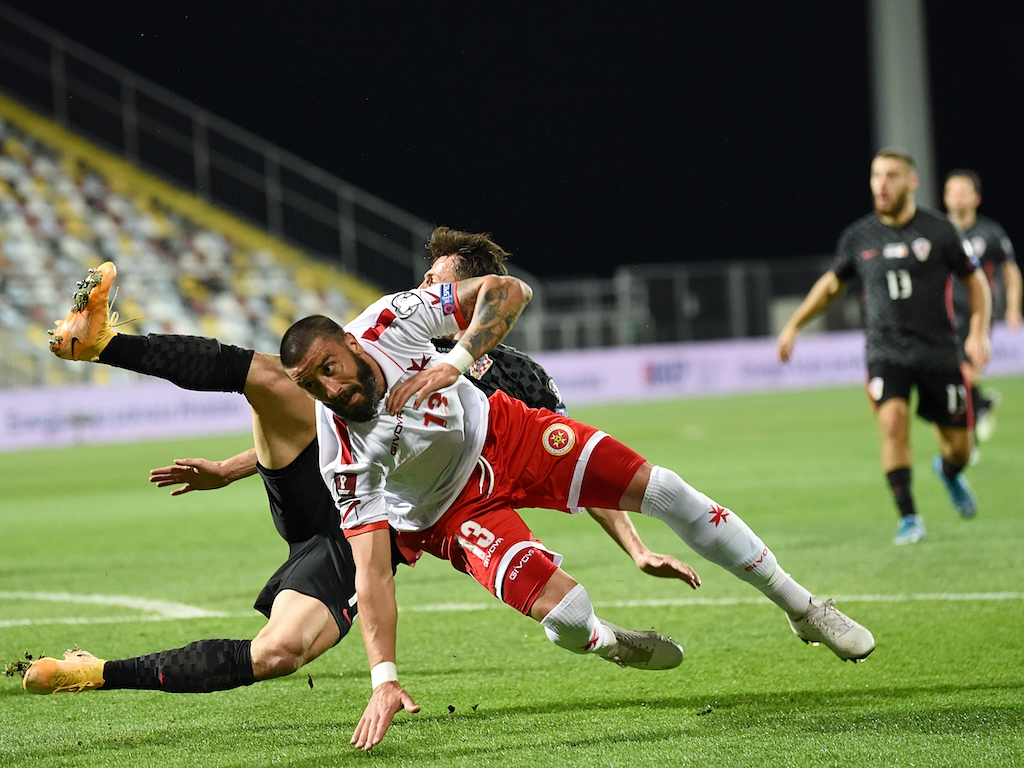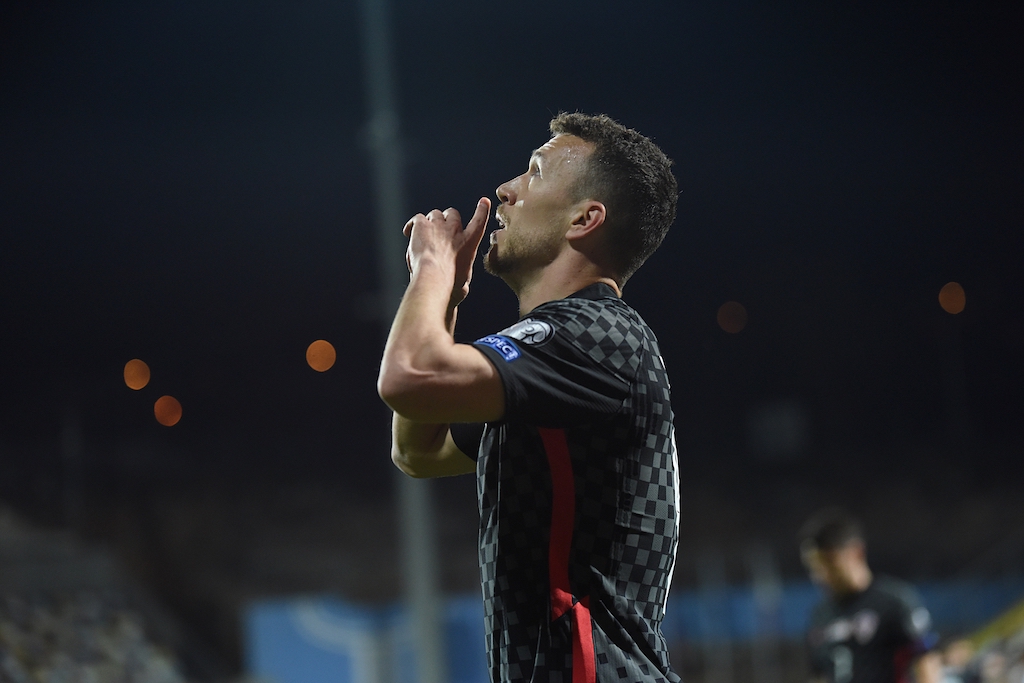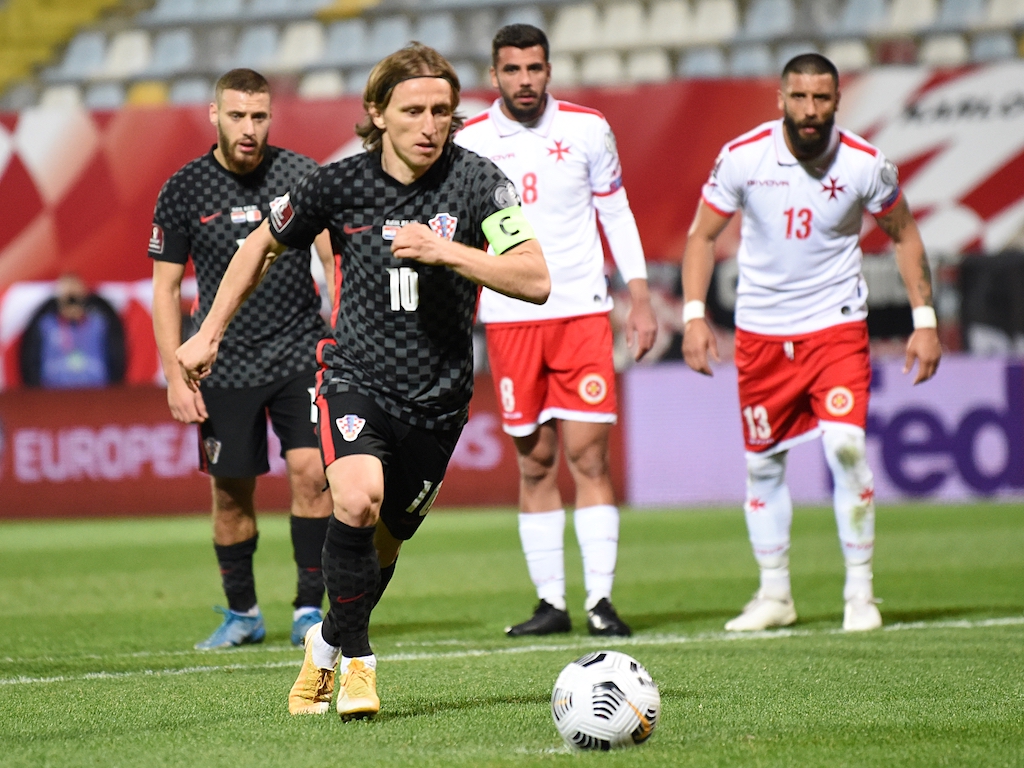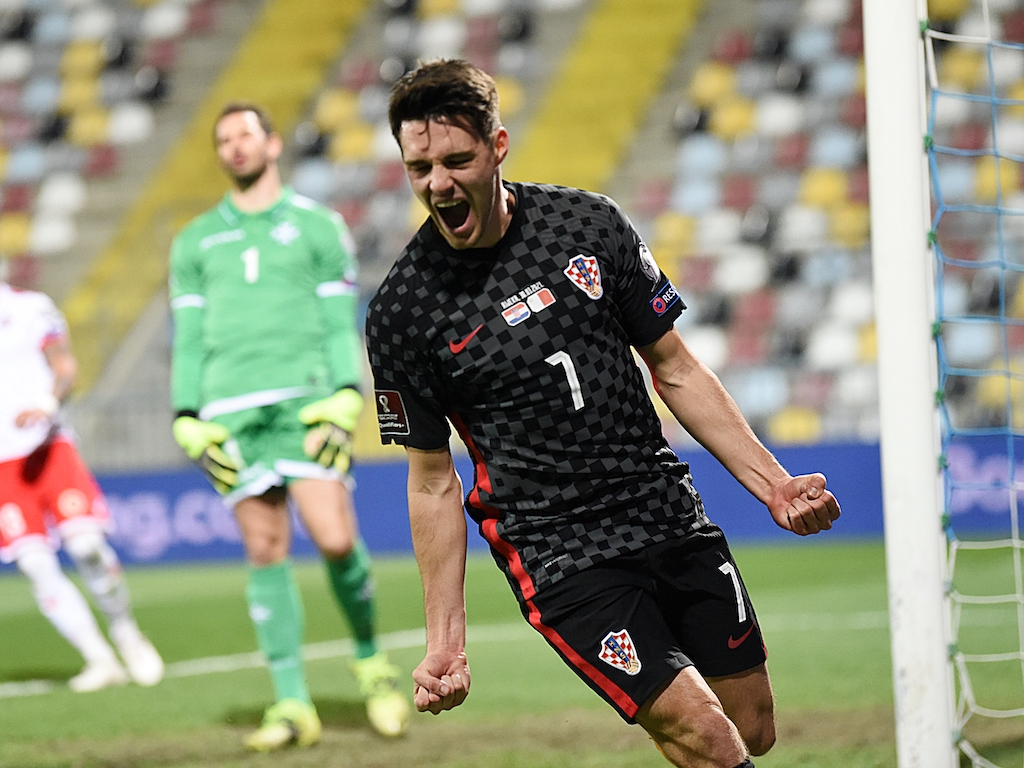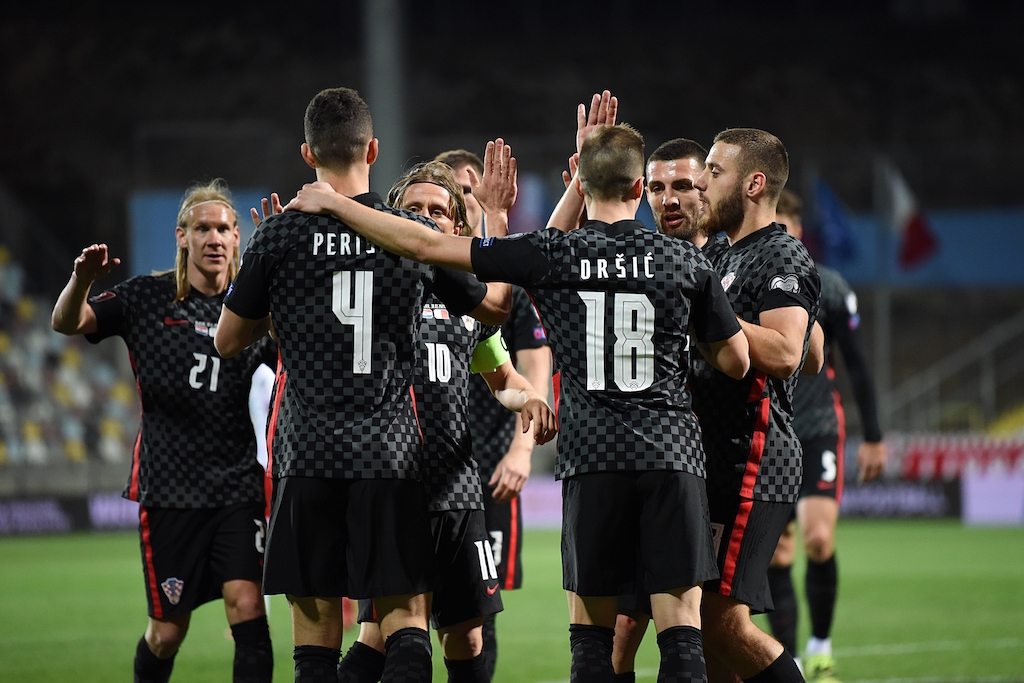Milanović Meets Malta's Parliament and Government Officials in Valletta
ZAGREB, 12 July 2022 - Croatia's President Zoran Milanović held meetings with the Speaker of the Maltese House of Representatives, Anġlu Farrugia, Prime Minister Robert Abela and the Opposition's leader Bernard Grech, on Tuesday, the last day of his two-day state visit to Malta.
On Monday, he was received by his host, Malta's President George Vella, for the talks on Croatia's aspirations to join the Schengen Area, Malta's experience in the changeover to the euro and the status of the Croats in Bosnia and Herzegovina.
These topics were also on the agenda of the meetings with the Maltese officials on Tuesday.
Vella invited Croatia's head of state to attend the Arraiolos Group's meeting which will be held in Malta this October. Arraiolos Group is an informal meeting of presidents of parliamentary and semi-presidential European Union member states, held roughly once in a year.
Milanović, accompanied by his wife Sanja Musić Milanović, paid the return visit to Valletta after his host Vella had visited Croatia last October.
For more, check out our politics section.
Milanović Says Croatia Expects Malta to Support its Entry to Schengen Area
ZAGREB, 11 July 2022 - Croatian President Zoran Milanović held talks with his Maltese counterpart George Vella in Valletta on Monday and informed him that he expects Malta's support for Croatia's entry into the Schengen Area.
During their meeting the two presidents also discussed the adoption of the euro by Croatia and the position of Croats in Bosnia and Herzegovina.
A press release from the Croatian President's Office notes that the visit to Malta is a return State visit at the invitation of President Vella.
Milanović said that Croatia's entry into Schengen is of direct interest to Croatia. "We are an open economy, as all European economies should be, according to the fundamental documents of the EU and the European commitment to the idea of free markets," he underscored.
He added that it is in Croatia's interest to facilitate the flow of people coming to Croatia and participating in Croatia's tourist industry and that he expects Malta's support in this regard.
"I will not claim that it is a done deal, that Croatia will immediately enter the Schengen Area, but I hope for the best," said Milanović, who will also discuss the topic with the President of the House of Representatives Anġlu Farrugia, Prime Minister Robert Abel and the head of the opposition Bernardo Grech.
The presidents discussed the introduction of the euro in Croatia. Milanović said that it is being treated as a fait accompli and something that seems unstoppable to him.
"Croatia has made a decision. We will have to live with that decision. It is not a worrying decision. It has been tested by many countries, so I am hoping for the best. Of course, we are renouncing one of the basic tools of state sovereignty, monetary sovereignty. Our currency was created in the stormy and turbulent years of our recent history," said Milanović.
He again criticised the granting of EU membership candidate status to Ukraine and Moldova while Bosnia and Herzegovina was circumvented in that process at the recent EU summit meeting.
"Unfortunately, this is an issue where the attitude towards this topic goes from disappointment to anger, and things only go from bad to worse. The last move was to grant Ukraine and Moldova EU candidate status while ignoring Bosnia and Herzegovina at the same time. That has nothing to do with prudent statesmanship, foresight and responsibility in international politics. That is something that really disappointed me," Milanović said.
He underscored that that is difficult to justify politically, tactically and ultimately ethically why the European Council - as the body that has a final say - did not grant candidate status to Bosnia and Herzegovina.
"That omission goes hand in hand with a number of other omissions that we witnessed in the Western Balkans, such as the dynamics of the negotiation process of Montenegro and the absence of the beginning of the accession negotiations of Albania and North Macedonia. And finally, Serbia, which, unfortunately, chose its path and is clearly not that interested in the European processes and rules that it has to follow. Maybe they will change their decision within a reasonable period of time, maybe not," Milanović said, as carried by the press release.
According to the press release, Vella said that he understood the Croatian president's sensitivity on the issue of the rights of Croats in Bosnia and Herzegovina and emphasised that the decades-long efforts of some candidates from the Western Balkans have not been rewarded.
A much greater commitment of the European Union to the countries of the Western Balkans is needed. In addition to leading to discontent in these countries, there is also a danger that these countries will begin to turn to the influence of third countries. A more serious and clearer European perspective would contribute, among other things, to the stability of Southeast Europe, said Vella.
In the context of Croatia's accession to the EU, Milanović said that the negotiations for membership in the Union were conducted with the knowledge that there are about 600,000 Croatian citizens in Bosnia and Herzegovina.
"Therefore, it cannot be said that these people became Croatian citizens after Croatia's entry into the EU. They were that before 2013. A large number of Croats living in Croatia originate from Bosnia and Herzegovina. Croatia is obliged to help these people, to try to contribute to solving their problems, but in a peaceful way," said Milanović.
For more, check out our politics section.
2022 World Cup Qualifiers: Croatia Tops Malta 3:0 in Rijeka
March 30, 2021 - In their 3rd qualifier for the 2022 World Cup, Croatia tops Malta 3:0 in Rijeka.
Croatia met Malta at Rujevica Stadium in Rijeka in the 3rd round of Group H of the 2022 World Cup qualifiers.
Zlatko Dalic's side had a shocking display in Ljubljana on Wednesday, losing to Slovenia to open the qualifications and immediately complicated their road to the World Cup. Recall, only the group winner qualifies directly for Qatar.
Two days later, however, Croatia changed tactics and managed to defeat Cyprus in a comfortable win. Mario Pašalić scored the only goal for the Vatreni during the first half. It surely wasn't Croatia's best performance, but it was enough to secure the team's first three points.
Dalić repeats the 4-3-3 formation used against Cyprus but decided to give many of his players some rest. From the last game, only Livaković, Ćaleta-Car, Pašalić, and Budimir returned the squad. Vida, Kovačić, and Vlašić made a comeback to the starting lineup after being benched the last match. Juranović, Melnjak, Badelj, and Oršić started for the first time. Vida replaced Modrić as the captain.
Lineups
Croatia (4-3-3): Livaković, Juranović, Ćaleta-Car, Vida, Melnjak; Kovačić, Badelj, Vlašić, Pašalić, Oršić; Budimir
Malta (3-4-3): Bonello; Shaw, Pepe, Borg; Mbong, Guillaumier, Kristensen, Camenzuli; Teuma, Satariano, Pisani
Recap
Croatia put a lot of pressure on the opposite team from the start, and it was Vlašić who got the first shot of the game in the second minute that went out, but very close to the post. Both teams started quite aggressively.
In the 14th minute, Vlašić again showed up to dribble past two defenders and put a very dangerous cross into the box. Pašalić hit the ball with a great header, but the shot went against the crossbar. This was Croatia's clearest attempt during the first half.
Despite the early pressure from Croatia in the first 18 minutes, it didn't seem like enough to take the lead or dominate the ball possession. Shortly after, the Croatia midfield seemed to find the patience necessary to initiate the attacks in a more orderly manner, getting 64% of the possession in the 25th minute.
Although the Croatia side became the superior team in terms of possession and attempts afterward, the Malta defense did not give ground. Once again, a nice combination between Budimir and Vlašić in the 31st minute of the game gave the latter a great chance to put an interesting cross in the box, but no one was there to tap it in.
They continued to look for scoring opportunities through the end of the first half, but despite Vlašić's great first half and Oršić, Pašalić, and Kovačić's individual display; the visitors did not lower their arms and defended their goal fiercely.
Just one minute was added to the end of the first half, but the result did not budge. Both teams reached the halftime break drawing 0-0.
The Vatreni began the second half just like the first one, searching for the lead by pressuring their rivals from the start. And who else but Vlašić, who in the 46th minute shot to goal to complete his third attempt of the night, however, saved by the keeper.
Slobodan Kadic
A couple of minutes later, another great opportunity came for the home team when Juranović's long ball reached Oršić, and the Dinamo midfielder found himself in a 1v1 situation with the goalkeeper. Oršić tried to lob the keeper, but he managed to stop the shot.
In the 53rd minute, Dalić decided to make a triple substitution. Modrić came on for Badelj, Brekalo for Pasalić, and Perišič for Budimir.
In the 58th minute, Barišič replaced Melnjak in the left-back position.
Reaching the first 15-minute of the second half, Croatia struggled to find more attempts. However, in the 61st minute, Barišić's entrance delivered more offensive situations, and he managed to put a beautiful cross that found Perišić completely alone in front of the goal. The veteran player scored the first goal of the game and became Croatia's fourth all-time scorer.
Slobodan Kadic
It looked like Croatia lowered the pressure after the goal, but the referee gave the Vatreni a penalty in the 75th minute due to a handball in the box. Luka Modrić, who became the Croatia player with the most appearances for the national team last match against Cyprus, scored the second goal of the match and his first in the qualifiers.
Slobodan Kadic
In the 78th minute, Lovrić replaced Oršić.
In the 90th minute, Brekalo scored for 3:0, which was the final score of the match.
Slobodan Kadic
Croatia will visit Russia on September 1 for their fourth game of Group H.
Slobodan Kadic
To read more about sport in Croatia, follow TCN's dedicated page.
Croatian Foreign Minister Visiting Italy and Malta
ZAGREB, June 14, 2019 - Croatian Foreign Minister Marija Pejčinović Burić visited Italy on Thursday and met with her counterpart Enzo Moavero Milanesi, the ministry said in a press release, adding that the two officials confirmed the good relations between the two countries and underlined the desire to further strengthen bilateral relations.
The ministers exchanged opinions on numerous regional, European and global issues of common interest such as the results of the European Parliament elections, the EU's new institutional framework, enlargement, the multiannual financial framework, Brexit, the protection of the EU's external borders, and the crisis of multilateralism.
The two ministers underlined the importance of the cooperation between the two countries within the Central European Initiative, whose chairmanship Italy took over from Croatia at the start of the year.
They also discussed Croatia's chairmanship of the Council of the EU next year, extending support for the European journey of Southeast European countries. It was said that Croatia will organise a summit on that topic in Zagreb.
Minister Pejčinović Burić also met with the Italian delegation to the Council of Europe Parliamentary Assembly.
Earlier in the day, Minister Pejčinović Burić was on an official visit to Malta, where she met with her counterpart Carmelo Abela on Thursday to talk about global and regional topics and of improving the already good bilateral relations, her ministry said in a press release.
Pejčinović Burić and Maltese Foreign Affairs and Trade Promotion Minister Abela underscored the very good relations between the two countries, with the desire to intensify them, particularly in trade, culture, tourism and protection of the sea, according to the press release.
The two foreign ministers exchanged opinions on current global and regional topics, and topics related to the European Union, on a comprehensive approach to migrations, security issues, the Mediterranean and Southeast Europe.
They pointed out the need to intensify dialogue and the exchange of good practice and stances as part of Croatia's preparations for its chairmanship of the European Union in the first half of 2020.
One of the priorities of Croatia's chairmanship will be the European journey of Southeast Europe, which Malta too considers important, and in that regard, Croatia will organise a summit of the EU and Southeast Europe dedicated to that topic, the press release said.
During her visit Pejčinović Burić met with members of Malta's delegation to the Parliamentary Assembly of the Council of Europe.
Pejčinović Burić is a candidate for that organisation's secretary-general, along with Belgium's Deputy Prime Minister Didier Reynders.
The Parliamentary Assembly of the Council of Europe will decide on the next secretary-general by secret ballot in Strasbourg on June 25, who will then step into office on October 1.
More foreign policy news can be found in the Politics section.
Croatian-Maltese Business Forum Held in Zagreb
ZAGREB, February 26, 2018 - The Croatian Chamber of Commerce (HGK) and the Malta Chamber of Commerce, Enterprise and Industry on Monday signed a cooperation agreement in Zagreb as part of a business forum, underscoring the big potential for cooperation, particularly in tourism.
Maltese President Visits Croatia
ZAGREB, February 26, 2018 - Maltese President Marie-Louise Coleiro Preca, who began a two-day visit to Croatia on Monday by meeting with President Kolinda Grabar-Kitarović, said Malta was lifting restrictions for Croatian workers and that this decision was effective immediately.
Maltese President to Visit Croatia Next Week
ZAGREB, February 23, 2018 - Maltese President Marie-Louise Coleiro Preca will pay a two-day visit to Croatia at the beginning of next week, at the invitation of her Croatian counterpart Kolinda Grabar-Kitarović, the Croatian President's Office announced on Friday.
President Grabar-Kitarović to Visit Malta
This week, the Croatian President will embark on a state visit to Malta.
Largest Croatian Film Distributor Moves Headquarters to Malta
Rivals are accusing Blitz of profiting from state aid.


